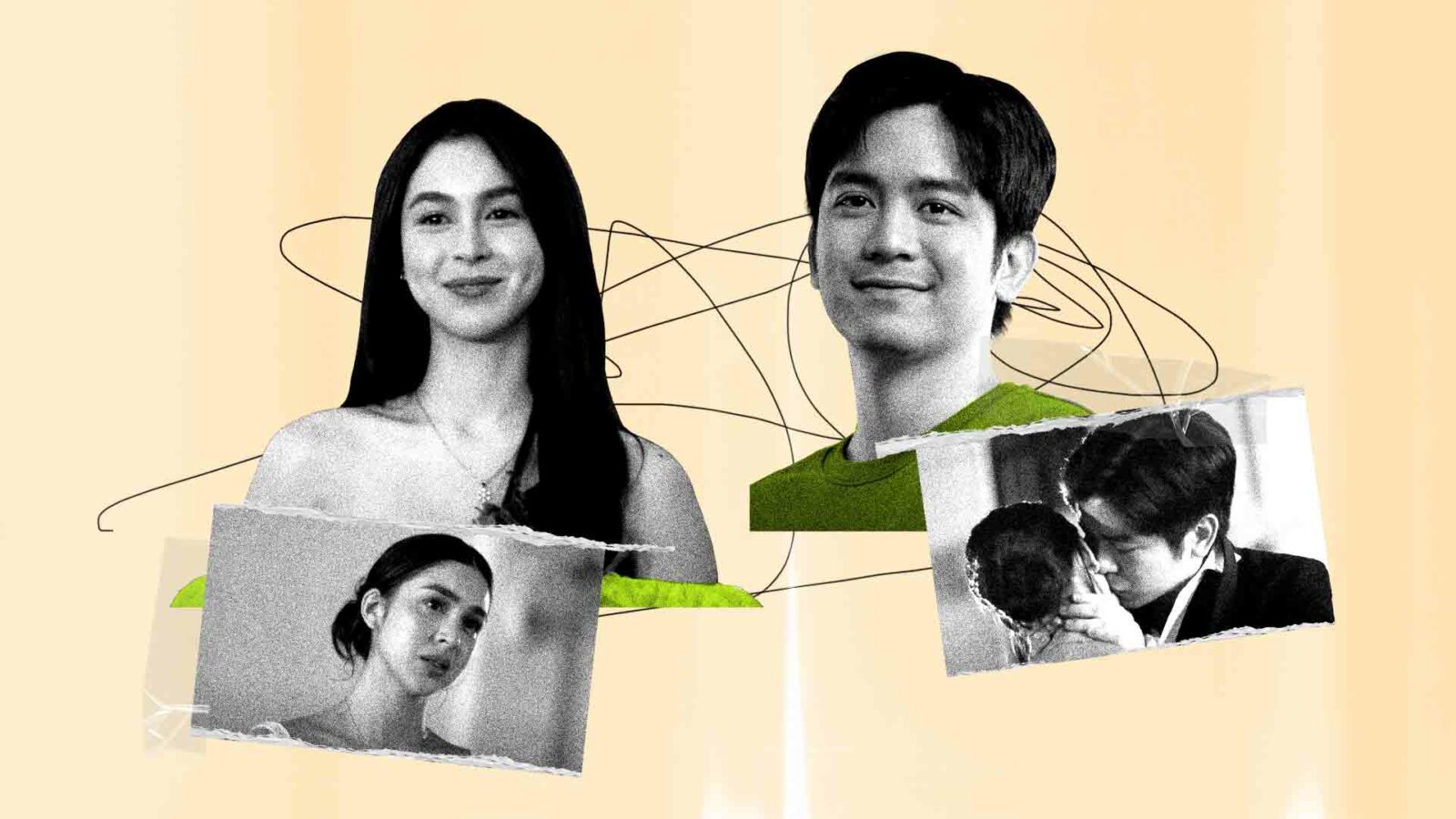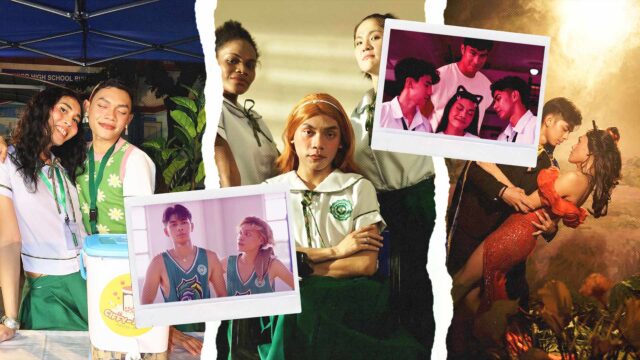A lesson in letting go, Joshua Garcia and Julia Barretto seemingly parallel their real life relationship and seek closure in Moira Dela Torre’s aching end to her Patawad series, Paubaya.
Love isn’t just the flutter of butterflies in your stomach when you lay eyes on your special someone. It isn’t chocolates, flowers, and grand romantic gestures that sweep you off your feet and puts even the most beloved rom-com trope to shame. Certainly, it is merely that gravitational linger that works doubly hard to pull you in closer when you have to unclasp your hands, say goodbye for the meantime or you know, to hang up on the phone first. More than just the good, heart-bursting times, love also means letting go. Yes, even in the most celebrated and concentrated days of romance, Valentine’s Day.
While everyone was presumably reeling from the euphoric, serotonin-induced high of Valentine’s Day, Moira Dela Torre pulled the rug from underneath with the release of her music video for Paubaya. Touted as the last chapter of her already emotional and too-much-to-handle Patawad series, the singer and songwriter known for her aching affection, tender takes on truth, and deceptively gentle take on gutting heartache really took it to another level with the poignant participation of once-upon-a-time real-life lovers, Joshua Garcia and Julia Barretto.
Forgive us, but whether you’re a fan, follower, friend, or even not, it was all too real and painful to watch—and we mean that in the best of ways. What more for the two actually living it?
Moira Dela Torre Strikes Again
A case of art imitating life, Paubaya unravels as a poetic closure as imagined by Moira Dela Torre, Jason Hernandez, and director Niq Ablao. However, unlike what is typically heavy-handed to wring out the dramatics for an already emotional context, the music video is realized as if it were those beautiful wedding videos that splices fragments of what should presumably be one of the happiest days in a couple’s life. Snippets of unfiltered bliss and scenes of love unbridled—it was all too good to be true. Even when decked in the finest for their nuptials, there was something amiss that could be read on the barefaced beauty of Julia Barretto.
“Saan nagsimulang magbago ang lahat?” strums Moira Dela Torre, which inadvertently signals the shift in the narrative.
Flashes of happier times fills the screen and with the awareness of how their real-life relationship ended, one can’t help but get all caught up in the rousing emotions woven into the story. Even in the midst of supposed joy, there are questions that seem to latch on you. Love, as it begins to manifest for Joshua Garcia and Julia Barretto, is not enough to say, “I do.”
With the literary lashes of well-meaning questions such as “Saan nag kulang ang aking pagmamahal” and “Saan natigil ang pagiging totoo,” all of which deserve an acknowledgement, an answer, it all dissolves into paragraphs of unspoken between Joshua Garcia and Julia Barretto, who at this point of the video decides to run for the church door. This is all make-believe, of course. But with the history between the two leads, it is already difficult to separate fact from fiction.
Between Joshua and Julia
Already compelling and captivating, the effervescent flow of Paubaya comes to a screeching halt with Moira Dela Torre singing, “Ba’t ‘di ko naisip na merong hanggan…” Here, the characters of Joshua Garcia and Julia Barretto confront each other in an emotional give-and-take that becomes all too real. Relenting to the call of closure, one that they may or may not have already given each other in real life, as they have understandably moved on well past it to participate in the pursuit of passion that is Paubaya.
“I’m sorry napagod ako. I’m sorry nawala ako. Natakot ako kasi hindi kita mahanap noon. Binigay ko sa’yo lahat, naubos lang ako. I’m sorry nasaktan kita,” Julia says in between gasps of breath and stream of tears. “Sorry kung wala ako nung mga panahong kailangan mo ako. Sorry kung wala ako nung kailangan mo ng makakapitan,” says Joshua in the honest exchange of regret, pain, and forgiveness. “Hindi man lang kita naprotektahan. Natakot ako, sobra. Gusto ko andun ako nung nasasaktan ka, pero wala.”
In their conversation of closure, one that as the credits suggest, Joshua Garcia and Julia Barretto themselves wrote, the pair illustrate through this compressed journey how love can still exist even when the romance is taken out of the equation. For any relationship that ceases to exist, the end doesn’t have to mean connections cut-off, especially if at some point, it was a source of unequivocal happiness.
“Sinubukan naman natin ‘di ba? Nilaban naman natin ‘di ba?” Julia asks, as if to say it wasn’t a lost cause—it just wasn’t meant to be for them that way.
In between waterworks and laughter, Joshua repleis, “Yeah, we tried.”
The Closure In Paubaya
Presumably, you are already reduced to a pool of tears yourself, because let’s face it: not everyone is accorded this liberty of closure. Even the emotionally mature and well-adjusted don’t get to come face-to-face with a figure from their past and close the loose ends, and in a last effort of unity, to write the final few pages of their chapter and punctuate it, together.
A lot has been said between Joshua Garcia and Julia Barretto about their ill-fated relationship, mostly by everyone but the two. This moment in Paubaya was indeed that fitting flourish needed to put this story to rest—just as many have unfortunately seen an end in their time. Underscoring love in its many stages and forms, it is as if this song was made for Joshua and Julia. But this everyone’s shared exposition, essayed in a most enchanting way by Moira Dela Torre herself, who yet again orchestrates feelings and emotions in a way we likely would never have tended to in the past.
Closure may not always come in the way we want to, that much we know. But even if it doesn’t become realized as hoped to be, we all deserve it at some point, for whatever reason—especially to let go and move forward. It is a greater force that is truly beyond comprehension, and in Paubaya, Moira Dela Torre ends it best: “Mahirap labanan ang tinadhana / Pinapaubaya ko na sa kanya.”





